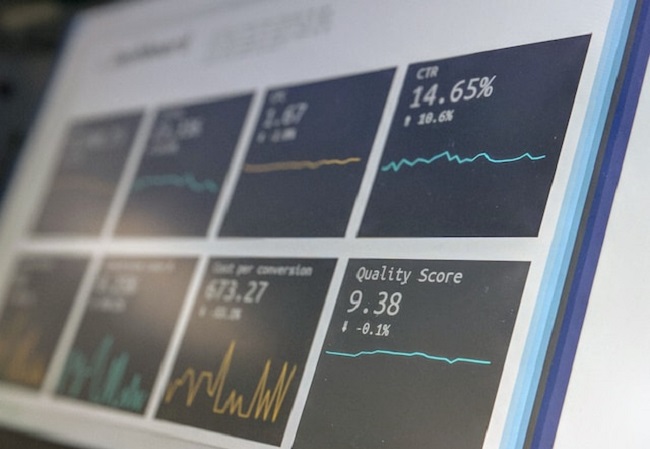In the ever-evolving landscape of digital marketing, the strategic adaptation to emerging trends is of paramount importance.
A significant paradigm shift within the domain of search engine optimization (SEO) centers around the transformation of meta tags and descriptions, now propelled by the capabilities of artificial intelligence (AI).
This article delves into the pivotal role played by AI in the generation of meta tags and descriptions and its consequential impact on optimizing click-through rates (CTRs) for websites.

The Evolution of SEO
SEO has transcended conventional methodologies, departing from the era of keyword-centric strategies and manual link building.
Search engines, led by Google, have evolved to comprehend user intent intricately, necessitating the crafting of meta tags and descriptions as concise, compelling snippets to entice user engagement.
While these elements were traditionally crafted through manual processes, the advent of AI has ushered in an era where machine learning algorithms analyze extensive datasets to generate meta tags and descriptions.
These AI-driven outputs not only incorporate relevant keywords but also align with the preferences of the target audience.
As SEO continues to evolve, the integration of AI, exemplified by Serpstat’s cutting-edge ChatGPT SEO plugin, not only streamlines the generation of meta tags and descriptions but also ensures they align seamlessly with the preferences of the target audience, marking a transformative shift in the approach to Digital Marketing.
The Role of AI in Meta Tags and Descriptions
AI-powered tools leverage sophisticated natural language processing (NLP) algorithms to discern contextual nuances and user intent within content.
This capability empowers these tools to generate meta tags and descriptions that go beyond the mere inclusion of relevant keywords, offering coherence, engagement, and tailored responses to user search queries.
Keyword Optimization
AI algorithms excel at identifying pertinent keywords by analyzing trending topics, user queries, and the specific content of webpages.
By discerning patterns in search queries, AI Tools suggest or generate meta tags and descriptions in harmony with contemporary SEO trends.
User Intent Understanding
Understanding user intent is crucial for CTR optimization. AI analyzes the semantics of a webpage, aiding in the creation of meta tags and descriptions that directly address what users seek.
This alignment significantly elevates the probability of attracting clicks from genuinely interested users.
Personalization
AI’s ability to analyze user behavior, preferences, and demographics enables the generation of personalized meta tags and descriptions. This level of personalization enhances user experience, contributing to increased CTRs.
Dynamic Content Updates
In a dynamic digital landscape, content is in a perpetual state of flux. AI-powered tools facilitate the automatic updating of meta tags and descriptions, ensuring that snippets on search engine result pages (SERPs) remain current and relevant.
Benefits of AI-Generated Meta Tags and Descriptions

Time Efficiency
AI streamlines the meta tag and description creation process, enabling marketers to allocate their time more strategically. Automation facilitates rapid content generation, allowing digital teams to focus on broader aspects of SEO strategy.
Improved Accuracy
AI leverages data-driven insights to enhance the accuracy of meta tags and descriptions. This minimizes the likelihood of human error, ensuring that the generated content aligns seamlessly with current SEO dynamics and user preferences.
Enhanced Click-Through Rates
The ultimate goal of optimizing meta tags and descriptions is to improve CTRs. AI-generated content, with its alignment to user intent and dynamic updates, significantly increases the likelihood of users clicking on a specific link.
Challenges and Considerations
While the integration of AI in meta tag and description generation offers numerous advantages, it is essential to acknowledge potential challenges and considerations:
Overreliance on Automation
Striking a balance between AI-driven automation and human creativity is crucial. Overreliance on automation may result in a lack of human touch in content creation, impacting authenticity and uniqueness.
Ethical Considerations
The effectiveness of AI algorithms relies on the quality of the data they are trained on. Ethical considerations are paramount to avoid biases in content generation.
Marketers must ensure that AI-generated meta tags and descriptions adhere to ethical standards, refraining from perpetuating stereotypes or misinformation.
Read Also:
Conclusion
AI-enhanced meta tags and descriptions signify a transformative shift in SEO. The infusion of machine learning in content creation not only amplifies efficiency but also significantly enhances the relevance and efficacy of these critical elements.
In an evolving digital landscape, the adoption of AI-driven solutions becomes imperative for Businesses aiming to maintain competitiveness and optimize their online presence.
Despite challenges, the merits of leveraging AI for meta tags and descriptions manifest in improved click-through rates and a refined, user-centric approach to SEO.




















